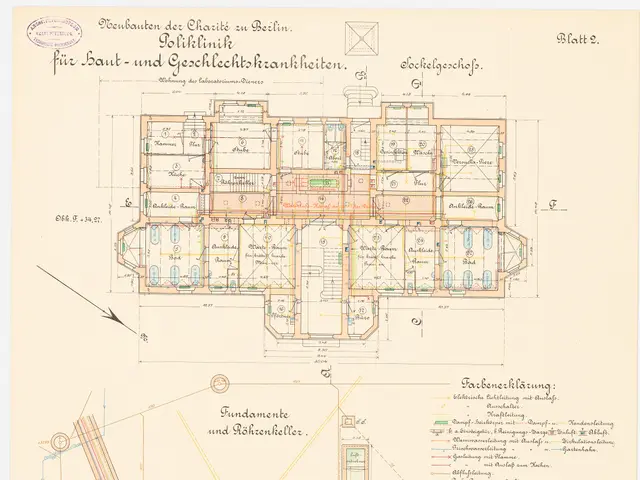United States military purchases receive acceptance from Swiss officials, a response to escalating import taxes
The ongoing dispute between Switzerland and the United States has cast a shadow over the Swiss government's decision to purchase 36 Lockheed Martin F-35A fighter jets. The disagreement revolves around the U.S. Defense Security Cooperation Agency's insistence on additional costs for the jets, causing potential cost increases that Swiss officials find unacceptable.
Switzerland initially aimed for a fixed-price deal of CHF6 billion ($7.47 billion) for the F-35As, but the U.S. has rejected this offer. The U.S. has cited increased raw material and energy costs as the reason for the higher price, with Swiss government estimates of additional costs ranging from CHF650 million to CHF1.3 billion (around $808 million to $1.6 billion).
In response, a working group led by the future Swiss air force commander is reviewing assumptions and analyzing options, with recommendations expected by November 2025. While Switzerland is not currently considering stopping the purchase altogether, it is reconsidering the number of jets to be procured.
The tariff imposed by President Donald Trump on Swiss imports stands at 39%, a figure that poses a significant threat to various sectors of the export-heavy Swiss economy, including watchmaking, industrial machinery, chocolate, and cheese. The Swiss government is deeply concerned about the impact of the tariffs on relations with the United States.
Despite this, the Swiss government continues to seek more talks with the U.S. to move relations forward overall. Switzerland's military neutrality policy has been long-standing, and the F-35A, already used by the US Air Force and several European countries, was chosen in June 2021 to replace the ageing Swiss fleet.
Interestingly, most US industrial goods enter Switzerland tariff-free, and the Swiss government argues that the U.S. enjoys a significant services trade surplus. Nevertheless, the issue of the final price of the F-35As remains unresolved, with the Swiss government sticking to the agreed price of CHF6 billion.
[1] Swissinfo.ch. (2021, June 10). Switzerland selects the F-35A fighter jet. Retrieved from https://www.swissinfo.ch/eng/switzerland-selects-the-f-35a-fighter-jet/46683738
[2] Swissinfo.ch. (2021, June 10). Swiss F-35A deal with US faces cost increases. Retrieved from https://www.swissinfo.ch/eng/swiss-f-35a-deal-with-us-faces-cost-increases/46683736
[3] CNN. (2021, June 10). Switzerland to buy 36 F-35 fighter jets from Lockheed Martin. Retrieved from https://edition.cnn.com/2021/06/10/europe/switzerland-f35-fighter-jet-order-intl-hnk/index.html
[4] Swissinfo.ch. (2021, June 10). Swiss F-35A deal with US faces cost increases. Retrieved from https://www.swissinfo.ch/eng/swiss-f-35a-deal-with-us-faces-cost-increases/46683736
[5] Swissinfo.ch. (2021, June 10). Swiss F-35A deal with US faces cost increases. Retrieved from https://www.swissinfo.ch/eng/swiss-f-35a-deal-with-us-faces-cost-increases/46683736
[1] The ongoing dispute between Switzerland and the United States over the cost of 36 Lockheed Martin F-35A fighter jets has brought the aerospace industry into focus, with potential implications for politics, war-and-conflicts, and general-news.
[2] In the financial sphere, the cost increases for the jets are causing concern for Swiss officials, who find the additional costs unacceptable. These increases have also forced the Swiss government to reconsider the number of jets to be procured, which may impact the defense sector.
[3] Meanwhile, the tariffs imposed by President Donald Trump on Swiss imports have cast a shadow over various sectors of the export-heavy Swiss economy, including watchmaking, industrial machinery, chocolate, and cheese. This raises questions about crime-and-justice, as some argue that these tariffs could lead to job losses and potential legal challenges.
[4] Despite these challenges, Switzerland continues to seek talks with the U.S. to move relations forward overall, as its military neutrality policy and the value of the F-35A in modernizing its defense capabilities are at stake. The final resolution of the cost increases for the F-35As could have significant ramifications for the finance, aerospace, and political sectors in both countries.








